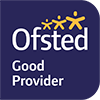Computer Science
Introduction
Computer science is a philosophy and a field of study that covers basically all aspects of information access, particularly as relates to computer code, technical engineering, and Internet communications. Many people who study Computer Science will go on to work in related areas, such as games developers, software engineers and systems analysts. The subject makes use of algorithms to study and solve complex problems and equations; others areas of the subject look for ways of utilising information technology to make certain tasks more efficient or streamlined. The field is often very closely related to cutting-edge technology, but is built on the fundamentals and building blocks of computer science: mathematical computations, information ordering systems and the logical puzzles used to decode patterns — these existed long before personal computers or mobile phones were even invented.
Years 7, 8 & 9
What will I study?
Computer Science is split into two main areas; The practical and the theory element. In each year, there is an increasing level of complexity and depth. Development of skills in the use of ICT is embedded throughout the course. Students will become competent in many different areas including a range of programming languages and many will go on to study Computer Science and/or ICT at KS4.
How will I be assessed?
Teacher assessed against curriculum.
Curriculum Maps
Years 10 & 11
What will I study?
- GCSE Computer Science
- Creative iMedia
What skills will I develop?
GCSE Computer Science
- Understand and apply the fundamental principles and concepts of computer science, including abstraction, decomposition, logic, algorithms, and data representation
- Analyse problems in computational terms through practical experience of solving such problems, including designing, writing and debugging programs to do so
- Think creatively, innovatively, analytically, logically and critically
- Understand the components that make up digital systems, and how they communicate with one another and with other systems
- Understand the impacts of digital technology to the individual and to wider society
- Apply mathematical skills relevant to computer science.
Creative iMedia
The Cambridge Nationals in Creative iMedia will equip students with a range of creative media skills and provide opportunities to develop, in context, desirable, transferable skills such as research, planning, and review, working with others and communicating creative concepts effectively. Through the use of these skills, students will ultimately be creating fit-for-purpose creative media products. The Cambridge Nationals in Creative iMedia will also challenge all students, including high attaining students, by introducing them to demanding material and techniques; encouraging independence and creativity and providing tasks that engage with the most taxing aspects of the National Curriculum.
How will I be assessed?
GCSE Computer Science
- Component 1: Understanding Computer Science
- Written examination: 1 hour 45 minutes
- 62.5% of the qualification
This component investigates hardware, logical operations, communication, data representation and data types, operating systems, principles of programming, software engineering, program construction, security and data management and the impacts of digital technology on wider society.
- Component 2: Computational Thinking and Programming
- On-screen examination: 2 hours
- 37.5% of the qualification
This component investigates problem solving, algorithms and programming constructs, programming languages, data structures and data types and security and authentication.
- Component 3: Software Development
- Non-exam assessment: 20 hours
- Unweighted
This component requires students to produce a programmed solution to a problem. They must analyse the problem, design a solution to the problem, develop a final programmed solution, test the solution and give suggestions for further development of the solution. Throughout the production of the solution students are required to produce a refinement log that evidences the development of the solution.
Cambridge National Certificate in Creative iMedia
The OCR Level 1/Level 2 Cambridge National Certificate in Creative iMedia consists of two mandatory units and two optional units.
Curriculum Maps
Year 10
Year 11
Key Stage 5
What will I study?
Cambridge Technical Diploma in ICT
The Cambridge Technicals provide opportunities to develop skills demanded by employers.
These qualifications and units are structured to enable students to gain qualifications at their own pace and build on their achievements.
The Cambridge Technical qualifications offer students the opportunity for a programme of study to:
- prepare for further learning or training
- develop essential knowledge, transferable skills and personal skills in a subject area that interests them with the aim of enhancing their employability
- move into different areas of employment
- develop their knowledge and skills as part of their Continuing Professional Development (CPD)
- achieve a nationally recognised vocational qualification.
What skills will I develop?
Students will have the opportunity to acquire the essential knowledge and tools for the world of work by developing transferable skills such as planning, research and analysis, working with others and effective communication.
Students may wish to extend their programme of learning through the study of general qualifications such as GCE, GCE AS or other related/appropriate vocational qualifications.
Some students may wish to gain the qualification in order to enter employment or to progress to higher education.
How will I be assessed?
A mixture of externally assessed and internally assessed/externally moderated units.


